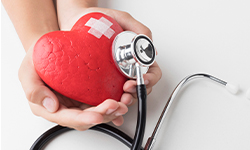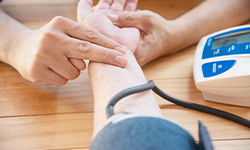
What Happens to Your Blood Pressure When You Don’t Exercise?

Table of Contents
Introduction
Over 1 billion people worldwide are suffering from hypertension; almost one in three adults in India suffers from this disease. The disease is considered a silent killer, for it shows no symptoms. Physical activities, like any type of exercising, positively affect a human being’s overall health, stress is the contributing cause of various diseases. Incorporating exercise in your routine life significantly cuts down the stress. Exercise also helps in optimising neurological health and improves memory and logical thinking of a person. Various evidence suggests that exercising a few times a week helps reduce the risk of various cardiovascular diseases. A person may avert the risk of heart failure by leading an active life. Physical inactivity is one of the risk factors for hypertension and various cardiovascular diseases.
Effect Of Exercise On Overall Health

Regularly exercising improves stamina and endurance and helps in building muscles. It also manages stress and depression by releasing various hormones in the body. A fit body, no doubt, boosts your self-confidence, while also treating insomnia and increasing relaxation.
Physical exercises also improve cardiovascular and neurological health. They even enhance cognitive functioning and sharpen a person’s memory. Further, they elevate the overall brain performance and promote creativity and logical thinking.
Effect Of Exercise On Cardiovascular Health

Cellular resistance to insulin signals also increases the risk of cardiovascular diseases. Performing routine exercise improves fatty acid uptake and increases insulin sensitivity. Even at a later stage of life, initiating exercise may help in reversing the functional and structural modifications. These modifications may be due to ageing or cardiovascular diseases.
Effect Of Exercise On Blood Pressure

Suppose a person performs mild to moderate exercise a few times a week. In that case, the average reduction in blood pressure is around 3.4/2.4 mm of Hg. This reduction is significant, given that even 1 mm of Hg reduction reduces the risk of heart failure events.
Regular exercise makes your heart more powerful. As the heart generates lesser force for optimum circulation, there is a decrease in the arterial pressure, which lowers the blood pressure. Various organisations incorporate different exercises in their hypertension treatment guidelines.
Conclusion
Exercise provides various health benefits and has a significant effect on the cardiovascular system. It reduces blood pressure and promotes heart health. It even plays an essential role in the hypertension treatment regimen.
Disclaimer
The information contained in this article is to educate, spread awareness in relation to hypertension and other diseases to the public at large. The contents of this article are created and developed by BPinControl.in through its authors, which has necessary, authorisations, license, approvals, permits etc to allow usage of this articles on The Website. The views and opinions expressed in this article are views, opinions of the respective authors and are independently endorsed by doctors. Although great care has been taken in compiling and checking the information in this article, The Website shall not be responsible, or in any way liable for any errors, omissions or inaccuracies in this article whether arising from negligence or otherwise, or for any consequences arising therefrom. The content of this article is not a substitute for any medical advice. The Website shall not be held responsible or liable for any consequence arising out of reliance on the information provided in the article.


Comments (0)
No comments found.Add your comment